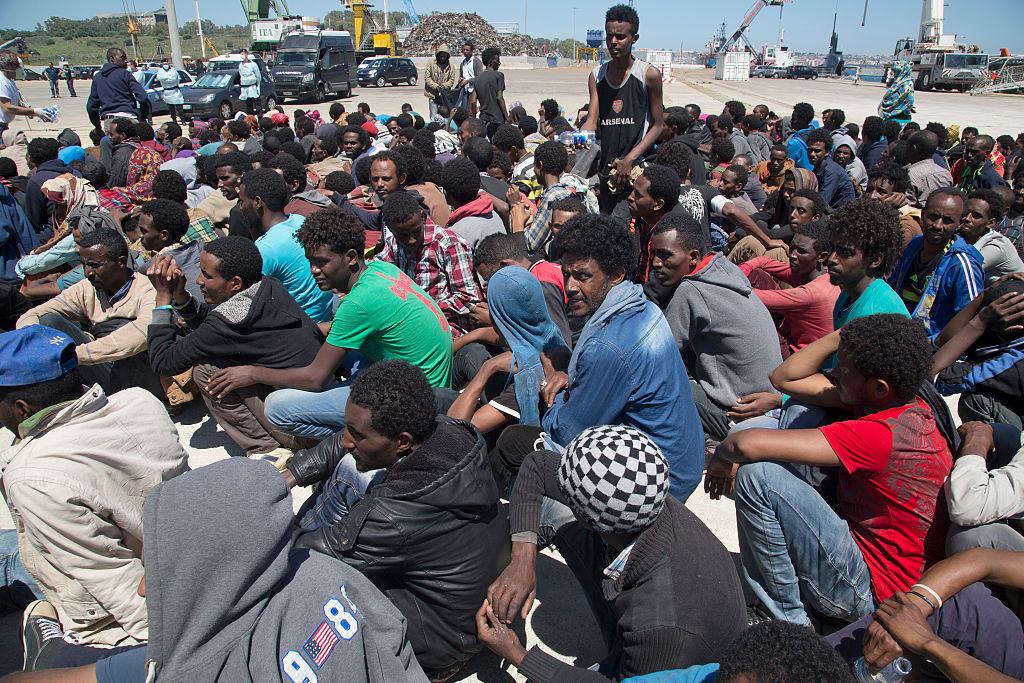A negotiated peace between Russia and Ukraine shortly after Donald Trump takes office in January of 2025 seems more and more likely. Based on his current personnel picks it is becoming increasingly obvious that the pre-election fears of Trump abandoning Ukraine were not only premature, but false. Let us take a look at the incoming administration and why it could make peace more likely.
First of all, the entire team that Trump has put together believes in the “peace through strength” doctrine that already existed during the first Trump administration and was masterfully executed: Not only did Trump not start any new wars, he was also capable of reassuring traditional allies like Japan and Saudi Arabia of continued US support, strengthened the position of Israel not by simply delivering arms but by brokering lasting peace deals through the Abraham Accords, and kept foes – like Russia – in check. Showing that the United States do not want to but are willing to use the full force of their military if provoked created enough deterrence to create a remarkably stable global order. The Europeans liked to complain because it was not based on rules and regulations (the toothless “rules based international order” that is mostly popular among bureaucrats and academics, but has little meaning in the real world), but on strength. As it turned out, however, the threat of American power has more currency in international relations than the threat of a European scolding by career diplomats. The European political establishment despises Trump not because of his failures, but his successes.
The members of the Trump 2.0 have been selected to continue these successes, and one can be hopeful that they will achieve their goals. Keith Kellogg, a retired lieutenant general in the United States Army and Trump’s freshly minted special envoy to Russia and Ukraine is already a hopeful sign. No dove on Russia, he pushed for an approach that forces both sides to the negotiating table. Everything – from arms deliveries to Ukraine to sanctions on Russia – must be part of a comprehensive strategy to bring the war to an end. And it appears that Trump’s nominee is already having an effect before assuming office: Both Putin and Zelensky have indicated a newfound willingness to talk, and in an interview with a Japanese TV station, Ukraine’s president said that regaining lost territory could also be achieved via diplomatic means.
This does not mean, however, that Putin is off the hook. It has been mentioned in the media that members of the incoming administration like Pete Hegseth for defence and special advisor Sebastian Gorka are quite hawkish on Russia, but Trump’s secret weapon is Chris Wright, the new energy secretary. Wright’s remarkable biography demonstrates that – compared to current energy secretary Jennifer Granholm – he is a true expert in the field. He obtained an undergraduate degree in mechanical engineering from the Massachusetts Institute of Technology (MIT) and furthered his education with graduate studies in electrical engineering at both MIT and the University of California, Berkeley. As an innovator in the US shale gas sector, he has significantly increased shareholder value over the last twenty years. His leadership has transformed Liberty Energy into a top-tier energy service provider in North America. Furthermore, he invests in and serves on the board of Oklo Inc., a next-generation small modular nuclear reactor (SMR) company that has experienced a substantial increase in market capitalization in 2024. In early 2024, Liberty Energy released a comprehensive 180-page policy document titled “Bettering Human Lives,” which seems difficult to contest. The summary highlights ten “Key Takeaways” as follows:
- Energy is essential to life and the world needs more of it!
- The modern world today is powered by and made of hydrocarbons.
- Hydrocarbons are essential to improving the wealth, health, and life opportunities for the less energized seven billion people who aspire to be among the world’s lucky one billion.
- Hydrocarbons supply more than 80 per cent of global energy and thousands of critical materials and products.
- The American Shale Revolution transformed energy markets, energy security, and geopolitics.
- Global demand for oil, natural gas, and coal are all at record levels and rising – no energy transition has begun.
- Modern alternatives, like solar and wind, provide only a part of electricity demand and do not replace the most critical uses of hydrocarbons. Energy-dense, reliable nuclear could be more impactful.
- Making energy more expensive or unreliable compromises people, national security, and the environment.
- Climate change is a global challenge but is far from the world’s greatest threat to human life.
- Zero Energy Poverty by 2050 is a superior goal compared to Net Zero 2050.
Wright is an absolute believer in making energy as abundant for as many people as possible, meaning that both supply and distribution under his leadership will increase. This, of course, is the greatest threat to Putin’s war machine which depends on elevated prices especially for fossil fuels such as oil and gas. If the US expands its role a the world’s largest energy producer and combines it with a more aggressive export approach, global prices will tumble, and so will Russia’s financial prospects. If this happens, Putin will most likely come to the negotiation table quite willingly, and probably soon.






The Greens are fading now, but I was in Germany with them at the start